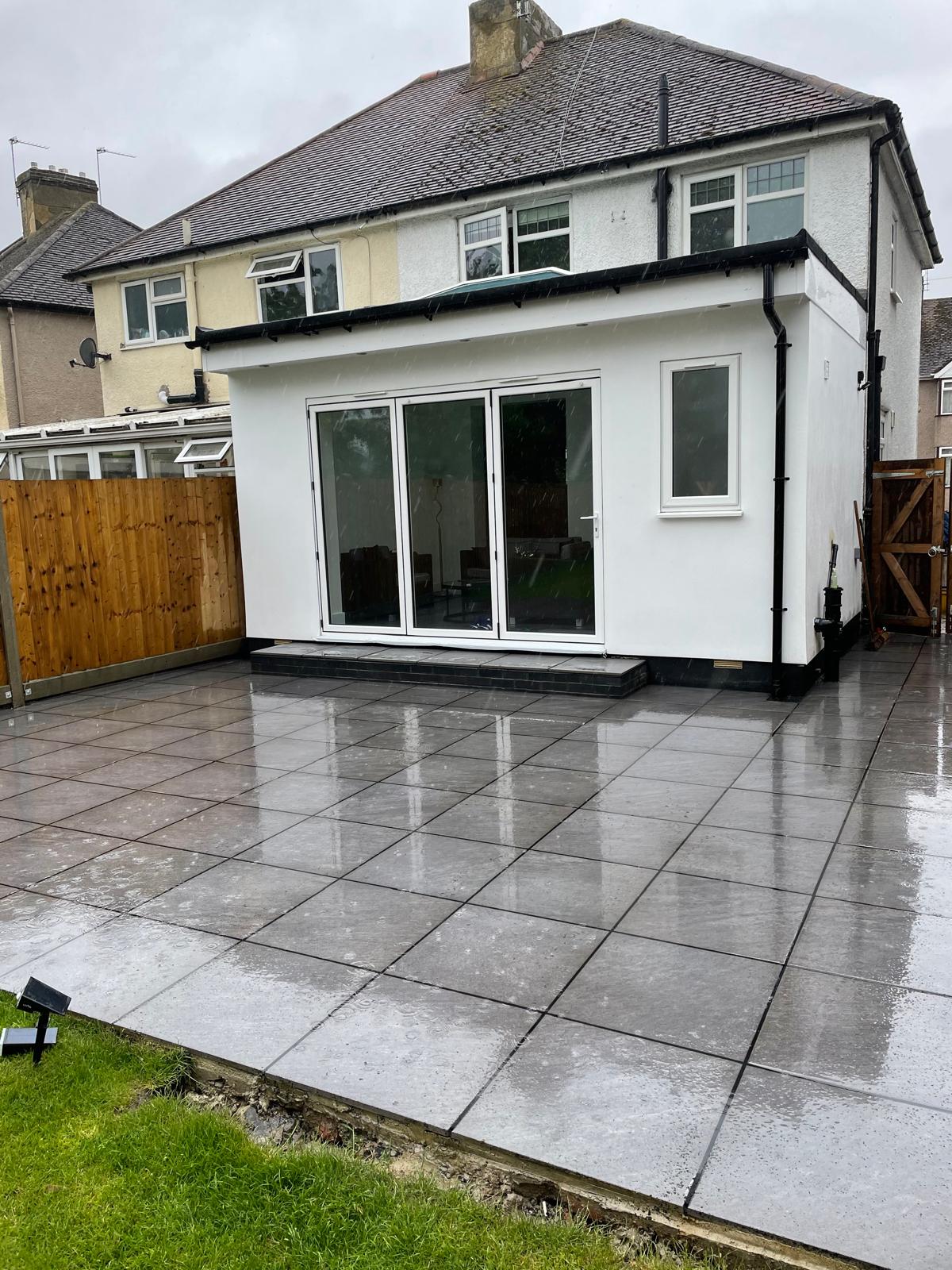Will house extensions actually add value to your home?
House extensions are a popular way to create more space and improve the functionality of a home, but one common question homeowners ask is, “Do house extensions add value?” From my years of experience in the construction industry, I can confidently say that a well-planned and executed extension can significantly increase your home’s value—both in financial terms and in the quality of living. I’ll break down the factors that determine how much value an extension can add and offer tips to maximise your return on investment.
How Much Value Can a House Extension Add?
The value a house extension adds depends on several factors, including the type of extension, the quality of work, and the local property market. Here’s a general guide to the potential value increases for common types of extensions:
1. Kitchen-Diner Extensions
Open-plan kitchen-diner spaces are one of the most sought-after features for modern buyers. A well-designed kitchen extension can add up to 15–20% to your home’s value, especially if it creates a spacious, multifunctional living area.
2. Extra Bedrooms
Adding an extra bedroom, particularly with an en-suite, can boost your home’s value by 10–15%. This is particularly true in areas where larger family homes are in high demand.
3. Loft Conversions
While technically not a ground-level extension, a loft conversion is another way to add valuable living space. These projects typically increase property value by 15–20%, making them a smart investment.
4. Home Offices
With remote working on the rise, creating a dedicated home office can be a major selling point. While the exact value added varies, a home office can make your property more attractive to a broader range of buyers.
5. Conservatories or Garden Rooms
Adding a conservatory or garden room can increase your property’s value by 5–10%, depending on its size, quality, and integration with the main house.
Factors That Influence Value
While these figures provide a general idea, the actual value added depends on several factors:
1. Location
Property values vary significantly by location. Extensions in high-demand areas, such as Kent or London, tend to add more value than in less competitive markets. Researching your local housing market is key to understanding what buyers are looking for.
2. Quality of the Build
The quality of materials and workmanship plays a significant role. A poorly executed extension can deter buyers, whereas a high-quality build enhances both aesthetics and functionality.
3. Compatibility with the Existing Home
Extensions that blend seamlessly with the original structure add more value than those that look out of place. Matching materials, proportions, and architectural style are crucial.
4. Planning Permissions and Regulations
Ensuring your extension complies with planning permissions and building regulations is essential. Non-compliant extensions can reduce value or even create legal issues. For detailed information on permitted development rights, visit the Planning Portal.
How to Maximise the Value of Your Extension
If you’re planning a house extension, here are some tips to ensure it adds the maximum value to your property:
1. Prioritise Functionality
Consider what buyers in your area value most. For example, families often prioritise extra bedrooms, while young professionals might prefer open-plan spaces or home offices.
2. Focus on Energy Efficiency
Energy-efficient extensions are becoming increasingly important to buyers. Features like double glazing, underfloor heating, and solar panels not only reduce utility costs but also enhance your home’s appeal.
3. Invest in Design
Working with an architect or experienced designer can help create an extension that enhances your home’s flow and functionality. Well-thought-out designs are more attractive to potential buyers.
4. Obtain Necessary Permissions
Even if your extension falls under permitted development, it’s worth confirming compliance with local regulations. For guidance, check out Gov.uk’s planning permission guide.
5. Choose the Right Materials
High-quality materials that match your existing home ensure durability and visual appeal. This also increases the perceived value of your property.
Challenges to Consider
While house extensions add value in most cases, there are some potential challenges to keep in mind:
- Overcapitalisation: Spending more on an extension than the added value it provides can lead to a poor return on investment. Research local property prices to avoid this.
- Disruption During Construction: Extensions can cause temporary disruptions, especially if you’re living in the property during the build. Planning ahead minimises inconvenience.
- Neighbourhood Value Caps: Even the best extension might not significantly raise your home’s value if the local market has a ceiling price.
For detailed technical guidance on building standards, you can refer to this Technical Housing Standards Guide.
Sustainable Extensions Adding Value with Eco-Friendly Features
Sustainability is becoming a top priority for homeowners and buyers alike. Incorporating eco-friendly features can enhance your extension’s appeal while saving you money in the long term. Consider:
- High-Performance Insulation: Reduces energy consumption and lowers bills.
- Reclaimed Materials: Adds character to your extension while reducing environmental impact.
- Smart Technology: Devices like programmable thermostats and energy-efficient lighting are highly desirable.
Final Thoughts
So, do house extensions add value? The answer is a resounding yes—when done right. By carefully planning your extension, choosing the right materials, and ensuring compliance with regulations, you can significantly enhance your property’s value and functionality.
If you’re considering an extension and want professional advice tailored to your property, I’d be happy to help. With years of experience in the construction industry, I understand how to balance cost, quality, and return on investment.
Contact us here to discuss your project. Don’t forget to check out our verified reviews on Google My Business and Trust a Trader to see what our clients say about working with us.
Other Blogs
For more insights into house extensions, take a look at these related blogs:

